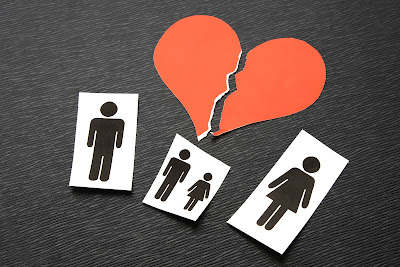 |
| Overcoming the Internal Critic |
The Internal Critic Often Develops at a Young Age
Most of the time, the internal critic develops when you're young. Authority figures, like parents, grandparents, other relatives, and teachers, who are often well meaning, might have tried to instill certain values in you as part of the socialization process. However, although well intentioned, these messages are not always delivered and received in a balanced and helpful way.
Sometimes these messages are harsh and, at times, cruel. Sometimes these messages can be emotionally abusive or traumatic ("You should learn to be more polite like your cousin. If you don't learn how to behave around people, you're never going to amount to anything"). When you're very young, you don't have the cognitive or emotional capacity to defend yourself against these harsh comments so you take them in and believe them. Later on, when you're older, you have already internalized these messages at such a deep level that you don't need anyone to repeat them to you any more because you're saying them to yourself now. These negative messages develop into the internal critic and they are detrimental to your self esteem, your relationships, your career and other areas of your life.
So what can you do?
First, realize that you're not alone. This is a common problem that many people face.
Second, recognize that the internal critic is only a part of who you are. It's not your entire being. We tend to think of ourselves as being unitary beings but, in fact, our internal world has a multiplicity of selves. These different aspects are often referred to as "parts" in psychotherapy. These parts often pull us in different directions at once, especially when we feel ambivalent about something important to us.
As an example, you can think about the last time that you felt highly ambivalent about something that was important to you and how you might have felt pulled in different directions internally ("A part of me wants to pursue a career in medicine. But another part wants to focus on sports. And there's another part that wants a career in the arts. Then, there's another part that says I'll never succeed at anything that I do. But there's another part that says I have talent in all of these areas and I can do well in any of them. I don't know what to do."
To clarify: I'm not talking about multiple personality disorder. What I'm describing is a normal, common occurrence in most people.
The Internal Critic is Only a Part of Who You Are
Often, when clients come to me to overcome the effects of an internal critic, depending upon the issues involved, I'll help them to recognize that their internal critic is only one part of them. The internal critic might be a large part, but it's still only one part. Most people are relieved to realize this. It makes the internal critic seem less overwhelming and more manageable. Then, depending upon the particular issue, I might use clinical hypnosis, EMDR, or Internal Family Systems (IFS) or a combination of these treatment modalities to help clients to overcome the internal critic and bring balance and harmony to their internal world.
EMDR and Clinical Hypnosis to Overcome the Internal Critic
In prior posts, I described clinical hypnosis and EMDR. Among other things, clinical hypnosis is particularly helpful for creative blocks and other emotional blocks. EMDR is usually helpful in dealing with trauma. Internal Family Systems helps to differentiate among the different parts, including the internal critic, and help bring them into harmony.
The goal of IFS is to empower you to strengthen your core self, which is the essence of who you are that always knows what's best for you and who can overcome the internal critic.
Getting Help in Therapy
If you feel overwhelmed by your internal critic, don't suffer alone. Seek help from a licensed mental health professional who has experience dealing with this issue.
About Me
I am a licensed NYC psychotherapist, hypnotherapist, EMDR and Somatic Experiencing therapist. I have helped many clients to overcome the effects of their internal critics.
To find out more about me, visit my website: Josephine Ferraro, LCSW - NYC Psychotherapist
To set up a consultation, call me at (917) 742-2624 during business hours or email me.
I am a licensed NYC psychotherapist, hypnotherapist, EMDR and Somatic Experiencing therapist. I have helped many clients to overcome the effects of their internal critics.
To find out more about me, visit my website: Josephine Ferraro, LCSW - NYC Psychotherapist
To set up a consultation, call me at (917) 742-2624 during business hours or email me.
















.jpg)












